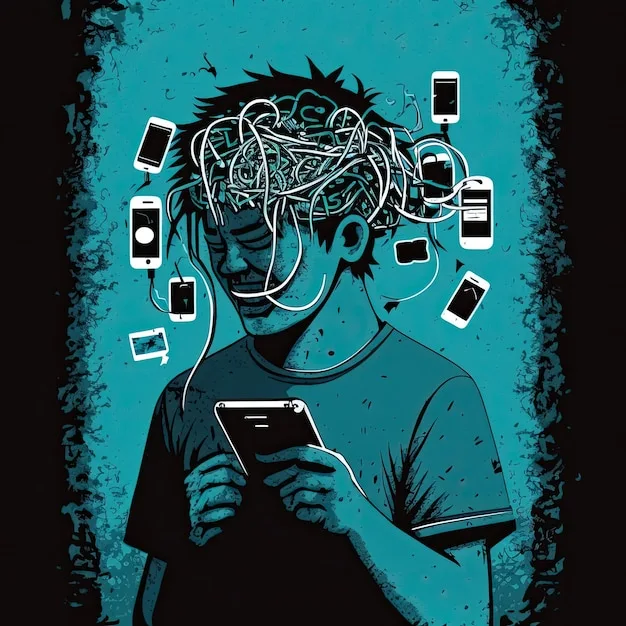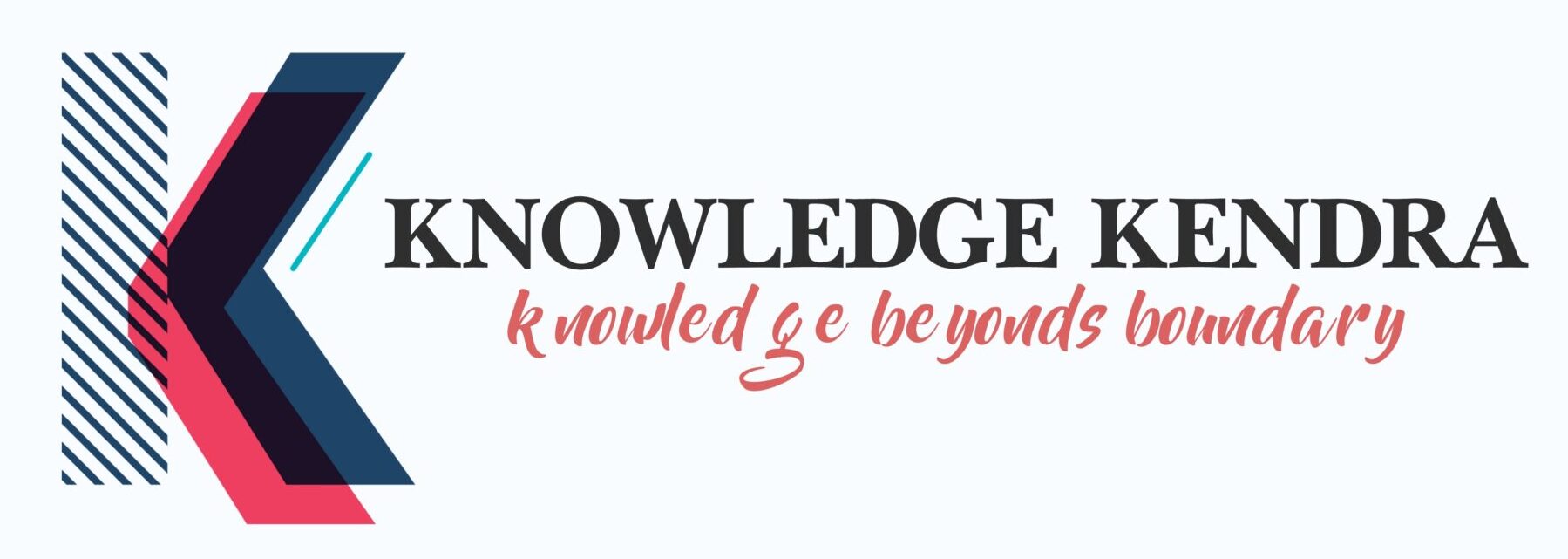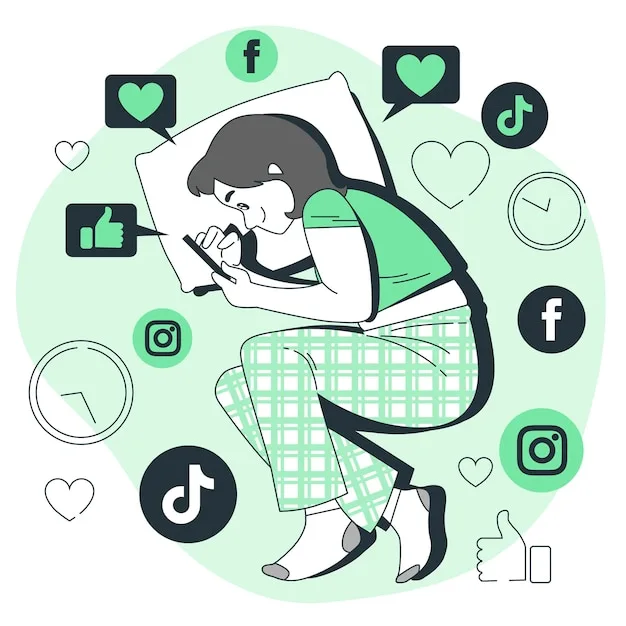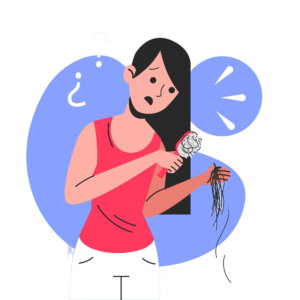
Social Media Relationship with Students’ Life and Studies
In this digital world, social media is an inevitable aspect of the life of any student. Instagram, Twitter, TikTok, Facebook, Snapchat, and many other platforms ensure instant connectivity, provide easy access to information, and facilitate numerous modes of communication. Thus, it’s not surprising that students around the world spend several hours a day immersed in social media. While social media has come to influence students’ life and study, it only serves as a one-edged sword that offers many advantages but also raises some challenging issues. This blog post will discuss in detail both positive and negative impacts of the role played by social media in students’ life and study.
The Prevalence of Social Media in Students’ Lives
According to Common Sense Media’s study in 2022, the average amount of time teenagers spend now on social media is nine hours per day and is constantly increasing with each new year. A morning scroll through Instagram, browsing Snapchat during a school lunch break, or a late-night binge through TikTok connect students to their social networks permanently, all for purposes of communication, entertainment, learning, or self-expression.
These are the primary reasons that explain why social media is omnipresent in the lives of their students:
Accessibility Almost every student owns a smartphone, tablet, or laptop, hence making it simple to access peers, teachers, and more resources related to learning. Peer Pressure and Socialization Getting along and trending in social media encourages students to become very engaged on social media. Entertainment Quick forms of entertainment through memes, videos, and more engaging content make it challenging for students to log out.
There are, nevertheless, education-related content resources from YouTube, LinkedIn, among other similar platforms, which help the students learn.
Though social media has become inextricable from students’ lives, there are severe repercussions it has on their academic performances, personal development, and mental health, both positive and negative ones.
Positive Impact of Social Media on Student Life and Academic Studies
1. Access to Educational Resources
Social media provides access through which students can meet their needs for education, even beyond the walls of a classroom. From their YouTube, Quora, and Reddit, there is a strong potential source for a student to absorb knowledge, from learning lectures and problem-solving tutorials to discussing matters on the subject or even how to make a career.
For example, while on YouTube, there are channels like Khan Academy and CrashCourse offering tutorial lectures on mathematics, science history, and in some cases, English, which can explain the most complex topics to students. In a way, this serves as the equivalent of an “AskScience” or “AskHistory” topic on Reddit-the platform opens avenues through which students’ probing questions can be evaluated by the experts from many disciplines.
2. Collaborative Learning
Collaborating students. Probably the most impactful feature of social media is how it makes collaborating among the students less of a hassle. Through Facebook, for example, you can create study groups easy and on time. Otherwise, if there are ideas in WhatsApp regarding the projects, then sharing them happens in real time with the other students. Moreover, using Google Drive, Slack, or Microsoft Teams can allow students to work on a project even when they disperse geographically.
In addition, through social media, students have the informal means to discuss matters of academics, clarify questions, and give peer tutoring. Such interactions will boost learning and may hopefully contribute to better understanding of topics studied in the class.
3. Skill Development and Networking
A social net and access to digital information provide students with learning beyond mere academic knowledge. For example, “LinkedIn becomes a vital hub for networking, showing off skills, and even finding a job or internship.” Students can build their professional profiles and connect with mentors, industry experts, and other alumni from their educational institutions.
Besides these, skills in coding, public speaking, or creative writing can be perfected through online challenges, webinars, and courses. Other websites are also integrated with social media, such as Coursera, Udemy, and LinkedIn Learning certification courses, where the students help them compete globally with today’s fast-paced changes in the job market.
4. Creativity and Self-Expression
Social media also gives the students a creative way of expressing themselves. From a short film, blogging, design art, or composed music, students can express themselves to bigger audiences through other platforms like Instagram, TikTok, or YouTube. It encourages creativity, fulfills personal needs as meaningful and worthy, and develops critical thinking and problem-solving skills on their road to academic success.
5. Emotional Support and Mental Health
Students face anxiety, stress, and loneliness in today’s active world. Social media can become a lifeline of support for them. Online groups and forums provide space for students to share their experiences and gain emotional support. For instance, using mental health forums on Reddit and supportive communities on Instagram may prove extremely useful in guiding a student towards maintaining his or her mental health situation.
Also, the BetterHelp and Talkspace platforms, associated with social media, offer counseling and therapy to students; that eventually helps them improve their academic performance in the most appropriate way through better mental health.
Negative Effects of Social Media on Students’ Lives and Academic Performance
There are many advantages in the use of social media, but at the same time, there is a long list of negatives, which negatively affects students’ academic performance as well as their mental health.
Distraction and Decline in Academic Performance
The most negative impact of social media, in fact, is that it makes most students distracted from studying. Constant notifications, scrolling, and a bombardment of engaging content-all these can easily shift the minds of students to indulge in less-time-catching activities instead of focusing on studying, hence resulting in procrastination and poor time management. In fact, according to a 2018 report by the American Psychological Association, students who spend plenty of their study time using social media tend to achieve poor grades.
Most college students generally have a hard time controlling the amount of time they spend on social media sites, thus often delivering only partly completed assignments, missing deadlines, and with quite abysmal grades at the end.
Social media sites can sometimes be addictive, making a student lose interest in their academics completely.
2. Mental Health Issues
While social media at times may support the emotional well-being of the students, it can be a major triggering factor for mental issues. The comparison with peers and celebrities has led students to fall low in self-esteem or feelings of inadequacy. Sites such as Instagram, which focus more on looks and lifestyles, often promote the idea that students have to be like those set standards in society to look beautiful, popular, or to gain success.
Another significant issue is cyberbullying. Cyberbullying victims suffer stress, depression, and anxiety; hence their academic performance drops and their well-being declines. According to the Pew Research Center study, 59% of teens found that they were a victim of some kind of bullying or harassment online. So it is quite a big concern .
3. Sleep Deprivation
Social media usage often tends to disrupt the normal sleep patterns of students. The screens may emit blue light that affects the body’s natural sleep-wake cycle in such a way that students find it increasingly difficult to fall asleep and sleep continuously. Moreover, most students are used to staying up most of the night to scroll through their social media accounts-this may lead to chronic sleep deprivation.
Students who do not sleep enough will not be able to focus in class, maintain little information retained in their brains, and perform poorly on exams. The Journal of Youth Studies published a report that noted that sleep-deprived students were more prone to performing poorly in their studies based on the constantly critical interlink between quality rest and academic performance.
4. Poor Social Interaction
Ironically, although social media was meant to make people social, excessive dependency on these networks can cause more social isolation than fixing problems. Students who spend too much time on social media may end up disengaging themselves from face-to-face activities with friends, family members, and classmates. An overdependence on online communication can impede the building of crucial social skills such as empathy, active listening, and the effective use of the verb, which is involved in verbal communication.
The worse part is that addicted students become irritated or anxious if they stay out of their phones for a while, experiencing withdrawal. This isolates them even more from the rest of their real life and affects their social and emotional development.
5. Plagiarism and Academic Dishonesty
With information so easily available on social media and other platforms, students are lured to engage in academic dishonesty, such as copying answers or submitting plagiarized content. Social media groups where students share homework solutions or test answers promote cheating, which continues to undermine the learning process as well as academic integrity at large.
One of the major issues confronted by education institutions today is “digital cheating.” It is of late that educators, to meet the challenge, resort more and more to plagiarism detection tools.
Staying the Balance: Social Media and Academic Life
Because it is such a massive part of everyday life, there seems little hope of fully separating from social media. However, socially mediated activities need to be balanced with academics for both academics and well-being to prosper.
The strategies students can employ regarding their utilization of social media are summarized below:
This helps them in establishing boundaries on usage, mainly time, most importantly during their hour of studying. There are apps such as Screen Time (for iOS) or Digital Wellbeing (for Android), which enables the students to monitor the time they spend on social media and limits imposed on them.
Academic work precedes social media engagement for a student. The student makes sure that they have done all their work regarding their academic tasks, including assignments, study sessions, and reading.
Yet, students can make their experience on social media even more enriching by following educational pages, mentors, and communities that offer academic support and professional advice. This way, social media would be a learning tool instead of staying at entertainment.
- Breaks: Scholars need breaks from social media to renew the mind and focus on mental well-being, but digital detoxes-even just for one day-allow students to calm down, regain focus, and boost mental clarity.
Conclusion
social media has become a double-edged sword in the lives of students. On one hand, it offers valuable opportunities for communication, collaboration, and learning. It allows students to access vast resources, connect with peers, and stay informed. On the other hand, excessive use can lead to distractions, procrastination, and negative impacts on mental health, ultimately affecting academic performance. To harness the positive potential of social media, students need to maintain a balanced approach, using it responsibly as a tool for learning while managing time effectively to focus on their studies.
visit https://knowledgekendra.com/how-to-stay-focused-and-avoid-distractions-while-studying/
visit https://www.healthline.com/health/social-media-addiction





Pingback: "How to Successfully Make Money Online in 2025" - Knowledge kendra
Pingback: "Top 1 Essential Most Asked Interview Questions" - Knowledge kendra
Pingback: The best newly launched 5G smartphones in India under ₹15,000 (2024) - Knowledge kendra
Pingback: Easy Low-Budget Business Ideas with High Potential in 2025 - Knowledge kendra
Pingback: Yuzvendra Chahal and Dhanashree Verma Divorce
Pingback: Mark Zuckerberg: Innovator Behind Meta & Facebook
Pingback: Devon Ferreira: A Rising Star
Pingback: Impact of Social Media: Advantages and Disadvantages